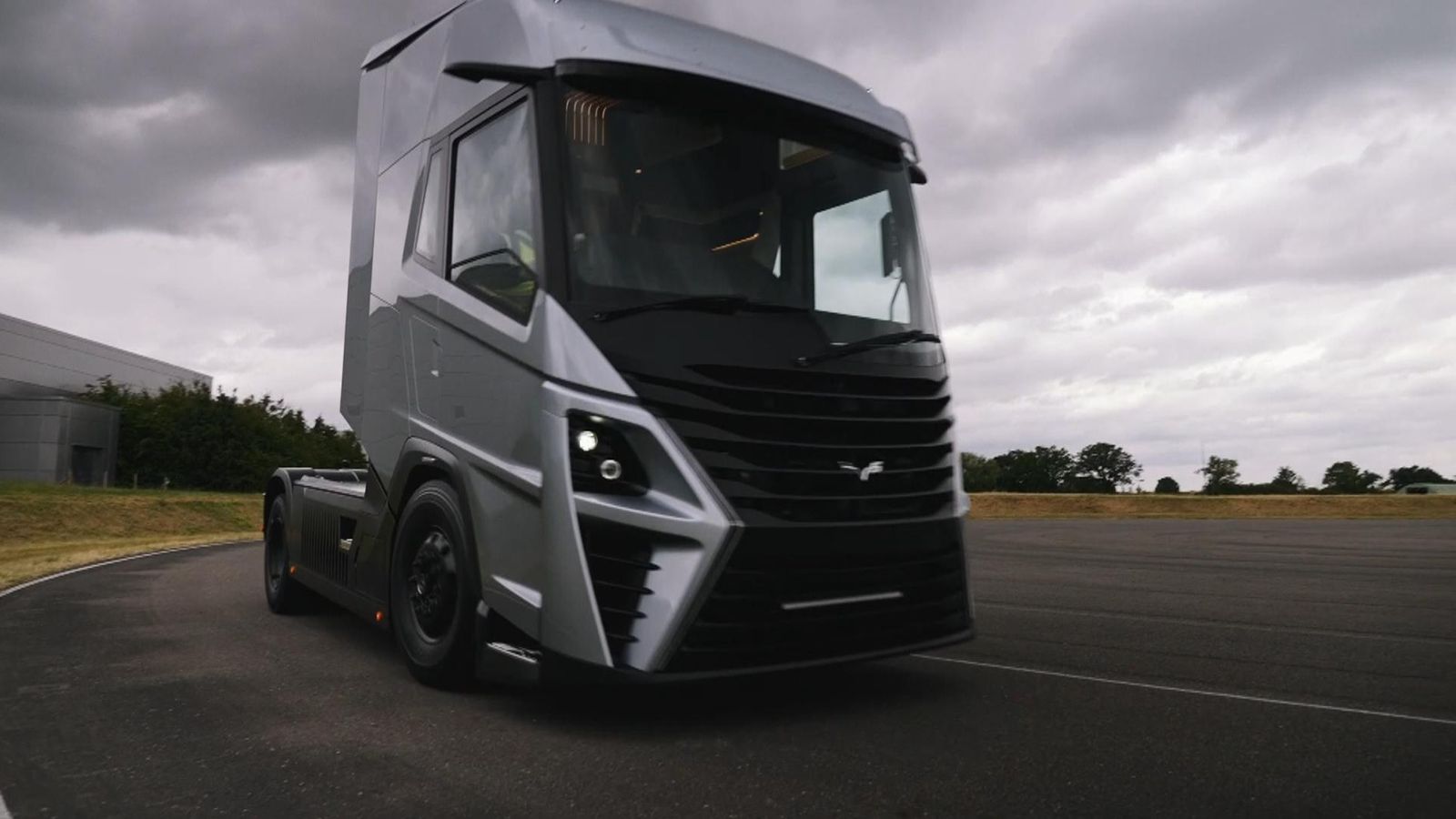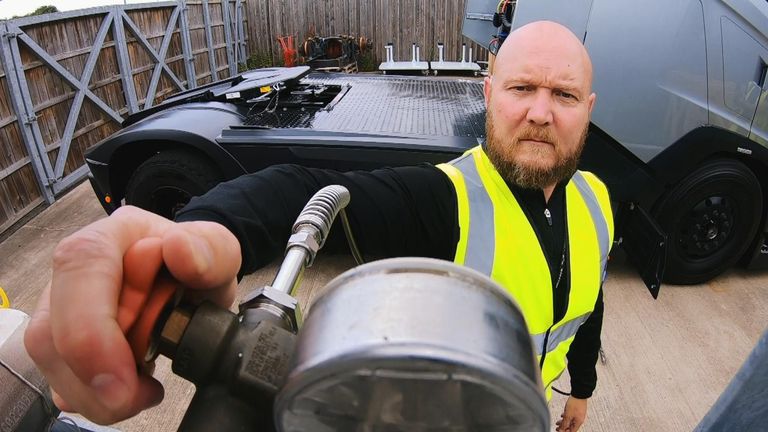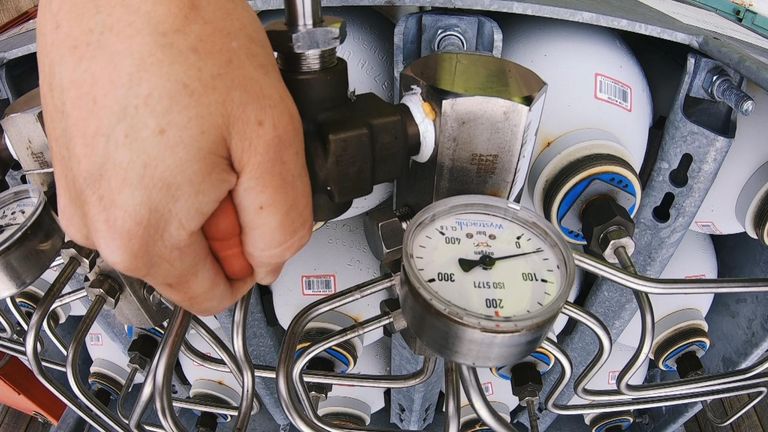British trials have started of a heavyweight truck powered by a gas that’s lighter than air – and emits nothing but water.
Sky News was given exclusive access to the first British designed and built heavy goods vehicle (HGV) to be fuelled by hydrogen as it was driven around the Horiba Mira test track in Warwickshire.
The Scottish manufacturers, HVS, say the truck could help decarbonise the road freight industry, which produces more than 21 million tonnes of carbon dioxide each year in the UK alone.
Jawad Khursheed, the dentist-turned-entrepreneur who started the company, said: “It has the exact same feel of a diesel.
“HGV drivers generally drive up to four hours and then take a break.
“In 15-20 minutes they can refuel with hydrogen and it’s good to go for another 600km.”
The truck stores hydrogen under high pressure in tanks that are designed to withstand impact. The gas is converted by a fuel cell into electricity, which then drives the wheels.
A battery that delivers similar range would weigh several tonnes, reducing the amount of freight that can be carried. And it would currently take several hours to recharge, significant downtime for fleet operators.
Macky Arthur, the prototype’s test driver, told Sky News: “You don’t have the roar of a diesel vehicle, you don’t have the fumes of a diesel vehicle.
“It’s a nice place to live and work.”
But hydrogen still has problems as a power source. Making it from green electricity is currently expensive and far less energy efficient that plugging a battery into a charging point.
The Centre for Sustainable Road Freight has calculated that switching all diesel trucks to batteries would need 10.6 GW of electricity – roughly the output of 900 large off-shore wind turbines.
But a switch to hydrogen would need 35.6GW of electricity to make it – requiring more than three times as many turbines.
Advocates of hydrogen insist that the technology will improve, allowing the gas to be made cheaply at scale.
Finding a way of decarbonising heavy goods vehicles is critical to reaching net zero.
Click to subscribe to ClimateCast with Tom Heap wherever you get your podcasts
HGVs make up 1.5% of all the vehicles on the UK’s roads, but produce almost 20% of all transport emissions.
But because of their weight and the intensity of their driving schedules they are hard to decarbonise.
More climate news:
Seabirds facing new threat of ‘big swirling collections of plastic’ in ocean feeding grounds, research shows
Leaked memo suggests £11.6bn climate pledge to be dropped – but government issues denial
Hottest June ever in UK, Met Office says – but announcement ‘invokes something sinister’
The government has banned sales of diesel trucks weighing up to 26 tonnes from 2035 and heavier vehicles from 2040.
It’s a timeline almost as tight as the deadline for sales of petrol and diesel cars.
But there is no consensus on whether lorries should be powered by batteries or hydrogen. And there isn’t a single recharging or refuelling station anywhere on the road network.
The haulage industry is holding back from making big investment decisions on decarbonising their fleets for fear that they opt for the wrong technology.
Michelle Gardner, from Logistics UK, told Sky News: “If you’re a fleet manager, you need to plan ahead for what vehicles you are going to be adopting.
“We need the government to be moving quicker with trials of vehicles.
“And we need a plan for how infrastructure is going to be put in place to reassure operators that their future vehicles are going to be supported.”
The government will shortly announce road trials of zero emission HGVs. And there could also be tests of overhead electric cables on motorways, a system already being looked at in Germany.
A spokesperson said the government’s approach to delivering decarbonisation was technology neutral, but “hydrogen technology may have a role in helping to decarbonise some areas of transport, such as heavy goods vehicles”.


